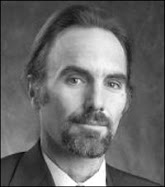(The Amazon.com billionaire would do well to listen to Charles Foster Kane)


Originally published at The American Thinker blog
By David Paulin
Media pundits have been beside themselves trying to divine
what motivated Amazon.com’s Jeff Bezos to buy the money-losing Washington Post.
(The company's newspaper division reportedly suffered an operating loss of $22.6 million for
the first quarter, compared with a loss of $12.8 million in the first quarter of
2011.) The Financial Times, among others, observed that
Bezos – who's worth $25 billion -- may have ulterior motives,
noting:
Like the giant business trusts that dominated the first Gilded Age, a handful of technology companies, including Amazon, have amassed a degree of wealth and power barely thinkable a generation ago. Just as John D. Rockefeller’s Standard Oil was once demonized as an octopus extending its tentacles into every facet of the U.S. economy, their influence is set to spread as more aspects of business and personal life are drawn into the digital realm.In Amazon’s case, that includes its influence on the retail industry and effect on local employment conditions in the many states where it is setting up warehouses. Mr. Bezos’ company is also exerting increasing power over areas of digital media, especially book publishing. And as one of the biggest participants in the cloud computing business, it has an important role in communications and computing infrastructure -- a position that is likely to make it ever more interesting in national security circles.Like most media owners, Mr. Bezos has been quick to deny any intention of using his new status to promote his own interests. “He made it very, very clear that he had no intention of interfering, one with the integrity of the Post and two with the editorial page,” says Katharine Weymouth, the paper’s publisher.But even if he sticks to that promise, the new proprietor of the venerable Washington Post seems certain to get a more ready hearing when he turns up in the nation’s capital.
The Financial Times and others have overlooked another
possible ulterior motive, perhaps the most obvious one. It was summed up by the
super-rich John Foster Kane, who in a letter
to his hard-headed former guardian, the banker Walter
Parks Thatcher, stated: "Sorry but I'm not interested in gold mines, oil wells,
shipping or real estate. One item on your list intrigues me, the New York
Inquirer, a little newspaper I understand we acquired in a foreclosure
proceeding. Please don't sell it. I'm coming back to America to take charge. I
think it would be fun to run a newspaper."
Forget about the theories that media pundits are putting
forth over Bezo's decision. Various scenes from one of America's greatest
movies, "Citizen
Kane," explain why Bezos, who is said to have had a
long-time interest in journalism, would want to acquire a prestigious yet
money-losing newspaper. As Kane said
to a dismayed Thatcher in another scene: "You're right,
Mr. Thatcher, I did lose a million dollars last year. I expect to lose a million
dollars this year. I expect to lose a million dollars next year. You know, Mr.
Thatcher, at the rate of a million dollars a year, I'll have to close this place
in... 60 years."






